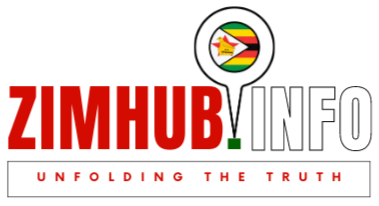Mthuli puts more taxes on public, business
SENIOR BUSINESS REPORTER
Professor Mthuli Ncube, the minister of finance, imposed a slew of new taxes in his 2024 national budget, including increased toll gate fees and taxes on carbonated beverages, putting the squeeze on the public to raise money to fund government operations.
Furthermore, civil servants’ $300 US Covid-19 allowance is now taxable.
“If you are a civil servant, the US$300 Covid-19 allowance is now part of your pensionable salary, starting in January,” Professor Ncube said.
In an effort to assist businesses during COVID-19, the corporate tax rate was lowered to 24% in 2020. However, it has since been increased to its original levels of 25%.
Additionally, Professor Ncube plans to increase fuel taxes in 2024 by raising the Strategic Reserve Levy by US$0.05 and US$0.03 per litre of gasoline and diesel, respectively, starting in January. This will result in higher fuel prices.
Moreover, newly built highways will incur higher fees.
“There is more.So, you liked the recently resurfaced Beitbridge-Harare highway? You now have to pay for it,” Professor Ncube said.
He proposed to increase toll fees from the current US$2 to US$5 or equivalent on what he calls “premium roads” and these include the Harare-Beitbridge highway and the Plumtree-Mutare road.
Citizens now face even more bad news as passport fees will increase from US$120 to US$200.
Professor Ncube also unveiled the Minimum Domestic Top-Up Tax (DMTT), a brand-new tax.
According to him, major multinational corporations are now required by international regulations to pay a minimum Corporate Income Tax rate of 15%.
“Generous tax incentives are allowing these companies to pay less than this,” Ncube said
He is proposing a new tax, the DMTT, which allows the country hosting the multinational to collect “top up tax” rather than the tax going to the headquarters of the company.
Professor Ncube announced a major policy change on lithium as currently, large lithium investors in Zimbabwe are processing and exporting concentrates.
“Now, they will be compelled to process lithium into carbonates, which is some two stages further up the processing chain. Concentrates are longer seen as “beneficiation”, and would attract an export tax,” the Treasury chief said.
Lithium miners have until March to submit their processing plans as no new lithium licences will issued without this plan.
Lithium miners were already hoping for a cut on their 5% royalty fees, to give them relief from a sharp fall in global lithium prices.
Professor Ncube targeted the affluent as well.
“If your house is worth over US$100 000, you will now pay an annual 1% “Wealth tax” on the value of your house and the money will be used for “urban infrastructure development, in particular roads, water, sewer and community health centres.”
“However, people aged over 70 are exempted from paying this taxes for their private homes,” Ncube said.
“Upon assessment of the value of the property and the tax payable thereof, taxpayers may elect to pay the tax on monthly, quarterly, or annual basis,” Professor Ncube said.

